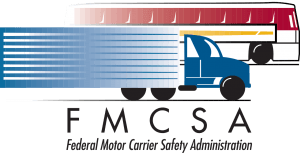Earlier this year, the Federal Motor Carrier Safety Administration (FMCSA) published a proposed rule that would expand the financial security requirements for freight brokers and forwarders, as well as increase penalties if those parties fail to comply with provisions. This rule impacts bonds or trusts that are required to provide financial security to trucking carriers and shippers.

The proposed rule would expand the financial security requirements for freight brokers and forwarders, increasing penalties for non-compliance.
Understanding the Current Freight Broker Rules
The rule would fall under the Moving Ahead for Progress in the 21st Century Act (MAP-21), a 2012 law that increased the financial security requirement for freight brokers and established a financial security requirement for freight forwarders for the first time.
Existing Requirements for Freight Brokers and Forwarders

Brokers and forwarders must maintain their surety bonds or trusts and renew them every year to keep their licenses in good standing.
Enjoying our insights?
Subscribe to our newsletter to keep up with the latest industry trends and developments.
Stay InformedUnder existing rules, freight brokers and freight forwarders must provide evidence of financial responsibility before they can obtain operating licenses. They must either post a $75,000 BMC-84 bond or deposit $75,000 in a BMC-85 trust. Since this is a condition of licensing, prospective brokers and forwarders can’t obtain licenses without first either posting a bond or opening a $75,000 BMC-85 trust. Brokers and forwarders must also maintain their surety bonds or trusts and renew them every year to keep their licenses in good standing.
BMC-84 Bond vs. BMC-85 Trust
- Most freight brokers and forwarders opt to post $75,000 BMC-84 bonds instead of opening trusts.
- This is because depositing $75,000 in a trust means that the broker or forwarder won’t be able to access the funds to use for other operating needs.
- With a bond, they can instead post a small percentage of the required amount based on their credit standing and financial stability.
Licensing Suspension and Bond Claims
If brokers or forwarders allow their bonds to lapse, their operating licenses will be suspended. The bond or trust is required to provide financial security to the shippers and carriers that do business with the brokers and forwarders. If a forwarder or broker violates the law or engages in misconduct, a carrier that suffers losses can file a claim against the broker’s or forwarder’s BMC-85 trust or BMC-84 bond to recover compensation up to the maximum amount of $75,000.
Investigating and Validating Bond Claims
Bond claims are investigated and validated before they are paid. If a surety determines a claim is valid, the surety will pay it. However, the bondholder will be required to repay the surety in full for a validated bond claim because of an indemnity agreement. If they fail to pay a bond claim, the surety can pursue legal action against them and recover both the claim amount and any legal fees incurred.
Reimbursing BMC-85 Trusts
Brokers and forwarders are supposed to reimburse BMC-85 trusts to bring them back up to $75,000 following valid claims. While reimbursing a surety company or a trust for paid claims is required, some brokers and forwarders fail to do so on a timely basis.
Handling Claims Exceeding$75,000
The existing rules also cover how claims against brokers that exceed $75,000 are handled. In those situations, the surety typically files an “inter-pleader’’ action in court to have the funds from the bond allocated between the claimants. This process can be time-consuming and costly for trucking carriers.
Proposed Changes to Freight Broker Rules

The new rule would require brokers and forwarders to immediately repay surety companies or replenish the funds in their BMC-85 trusts following valid bond claims.
The proposed rule would make changes to address these problems and enhance compliance.
How the Proposed Rule Would Change Financial Security Requirements
The new rule would require:
1. Immediate Repayment and Replenishment
• Brokers and forwarders to immediately repay surety companies or replenish the funds in their BMC-85 trusts following valid bond claims.
2. Repayment Timeline
• Freight brokers and forwarders to repay surety companies that pay claims within seven days to bring their available financial security back to $75,000.
3. Timely Deposits for BMC-85 Trusts
• Those that have BMC-85 trusts to deposit money into the trusts to bring them back to $75,000 within seven days of a paid claim.
If they don’t repay the claim within seven days, their operating licenses would be suspended, meaning they would have to cease operations immediately.
According to FMCSA, brokers and forwarders that fail to maintain $75,000 in financial security would have their operating licenses suspended if they don’t bring their security levels back up to $75,000 within seven days following a draw-down.
Eliminating Payment Plans and License Suspension
While some surety companies allow brokers and forwarders to repay paid claims through payments over time, the proposed rule would mandate repayment within seven days. If they don’t do so, their operating licenses would be suspended, meaning they would have to cease operations immediately until they could repay the claim amount to the surety or trust in full.
Potential Elimination of Inter-pleader Process
This proposed rule would also potentially eliminate the need for the inter-pleader process when multiple claims are filed by different parties against a single broker. Since the broker would have to immediately replenish the funds for the surety bond or trust account, the newly deposited funds could then be used to cover additional claims when they total more than $75,000 in aggregate. As each claim is paid, the broker would then have to deposit additional amounts or re-up their bonds to cover other valid claims.
What’s Next for Freight Broker Rules?

The proposed rule could incentivize freight brokers and forwarders to avoid bond claims by ensuring they comply with the laws, regulations, and contractual obligations
The proposed rule is currently going through the rule-making process based on an analysis of comments from stakeholders on the proposal, and it could be modified before becoming a final rule.
If the rule as outlined in the proposal is made permanent, it will incentivize freight brokers and forwarders to avoid bond claims by ensuring they comply with the laws, regulations, and contractual obligations that apply to them.
More News Related to This Topic
To learn more about brokers in the freight industry, including regulations and updates, follow this link.
Stay up-to-date on the latest motor carrier news, industry movements, and regulations by clicking here.
Discover the latest news on FMCSA regulations and how they affect the trucking industry and motor carriers by clicking this link.
Stay informed about the latest news and changes related to compliance in the freight industry by clicking here.
External Resources:
Federal Motor Carrier Safety Administration (FMCSA) Broker Registration
About Moving Ahead for Progress in the 21st Century Act (MAP-21):
The Moving Ahead for Progress in the 21st Century Act (MAP-21) is a comprehensive transportation funding and policy legislation enacted in July 2012. MAP-21 aimed to improve safety, streamline the federal highway program, reduce traffic congestion, and protect the environment. It provided funding and established various programs for highway and transit projects, as well as consolidated and eliminated several transportation programs to ensure efficient use of resources. One of the significant aspects of MAP-21 is the introduction of performance-based planning and the requirement for freight brokers and forwarders to increase their financial security.




















